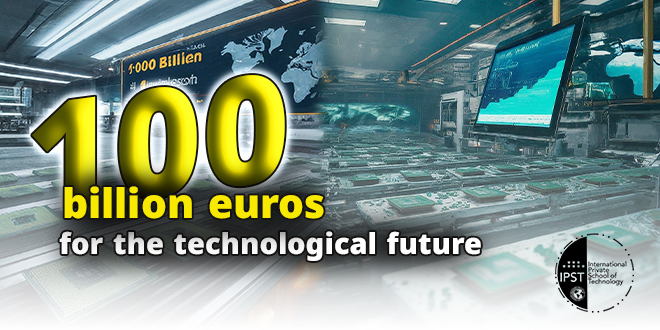The European Semiconductor Act is on track to attract more than 100 billion euros ($108.41 billion) of private investment in Europe’s semiconductor industry by 2030, according to a European Commission official.
Thomas Skordas, speaking at a conference in Antwerp on the future of the initiative, said the European Semiconductor Act aims to compete with similar programs in the United States, Japan and China , which support their domestic microchip manufacturers.
The European Semiconductor Act has led to “investment promises of around €100 billion to expand manufacturing capacity in the EU by 2030,” Skordas claimed. This act, announced with funding of €43 billion, relies largely on individual governments, with the Commission having so far approved very little actual funding.
However, companies including Intel and TSMC announced plans this year to build factories in Germany, at a cost exceeding 30 billion euros.
Skordas, an official in the Commission’s digital unit, said the Commission expects to finalize funding for R&D pilot lines in four sub-sectors of the chip industry by September, including one grant of 2.5 billion euros for the development of extremely advanced chips in Europe. Unspecified funding for another pilot line to develop photonics, or chips that use light instead of electricity, is also in the works.
The Commission is also arranging funding for a European design platform that will give companies, academics and startups access to the software tools needed to design their own chips. Most advanced chipmakers design chips but leave manufacturing to specialists such as TSMC, Samsung or Intel. “In July, we plan to open the call for the consortium that will be responsible for the design and development of this platform at the European level.
 International Private School of Technology المدرسة الدولية الخاصة للتكنولوجيا Private School مدرسة خاصة للتكوين المهني
International Private School of Technology المدرسة الدولية الخاصة للتكنولوجيا Private School مدرسة خاصة للتكوين المهني


